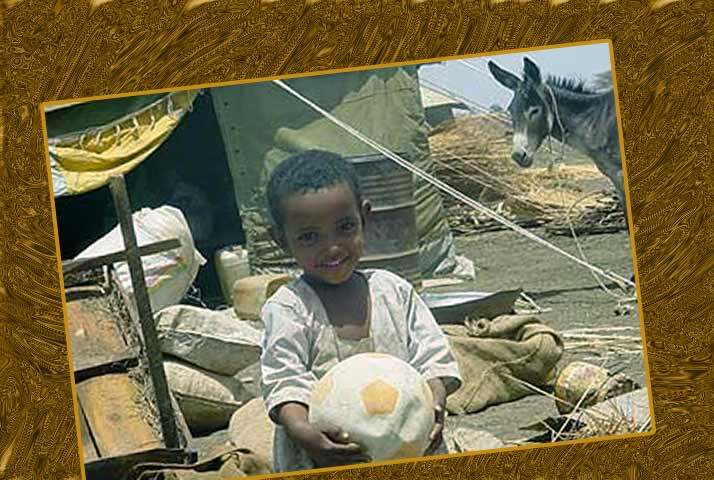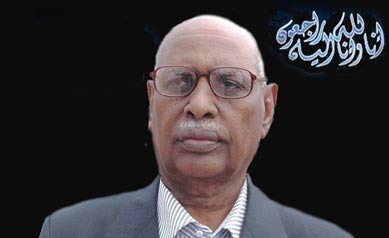Hate Speech Within Eritrean Communities

On March 15, 2019 New Zealand was rocked by a cowardly attack on two of its mosques, fifty innocent Muslim worshipers were gunned down and many others injured. The attack targeted Muslim worshipers as they were gathering for their weekly Friday (Jummaa’) prayers. This callous attack wasn’t the first of its kind on a place of worship, but certainly was one of the deadliest attacks in recent years. On October 27, 2018 a Jewish synagogue was attacked in Pittsburgh during the Shabbat morning services, eleven people were killed and seven were injured. On January 29, 2017, a mosque was attacked in Quebec City, Canada; six worshippers were killed and nineteen others were injured. In June 17, 2015 the African Methodist Episcopal Church was attacked in Charleston, nine African Americans were killed and many injured. All of these attacks were committed by individuals linked to white supremacy.
On April 9, 2017, twin suicide bombings took place at St. George’s Church in northern Egypt where at least forty five people were killed and many others injured. This attacks was claimed by ISIL. All of these attacks had three things in common: they were cowardly attacks on innocent worshipers, they were hate driven and they targeted sanctuaries dedicated for peace, devotion and spiritual comfort.
Religion and history
After every violent attack, particularly on a place of worship, the world struggles to explain these unexplainable acts of brutality. Many of the perpetrators of these crimes readily explain their actions and justify them in religious, historical and nationalistic terms. They perversely misuse the same religious texts that inspire millions of the faithful around the world to be kind, forgiving and loving to others. Obviously, their fringe and obnoxious interpretation of religious text has to do more with their own perverted views, more than the religious text itself. They cherry pick religious texts out of context and manipulate them to fit their gruesome and detestable outlook of the world.
They use past historical glory or grievances or rivalries to validate their convoluted views. History isn’t perfect and it reflects the evolving human experience, with all human limitations. It reflects the realities of the past and its occurrences can only be understood within their own historical context. History represents the shared experience of human experience from which lessons can be learned and used to make today’s world a better place. Analyzing past history without considering the ever changing global social, political, national and interfaith relations isn’t only archaic, but utterly foolish. The “manifesto” of the New Zealand attacker was full of references to past historical rivalries in an attempt to revive the long forgotten bitterness and insinuate hate and discord.
Despite their different names, means, claims of religious and national affiliations, these hate mongers have one thing in common, they all belong to the same school: “the school of hate”. A school whose core foundation is, to hate, vilify, malign and attack anyone who is different and doesn’t subscribe to their narrow and exclusive ideology!
Eritrean concerns:
The globally rising tide of hate should be of great concern to Eritreans at home and in diaspora. Eritreans generally pride themselves for being tolerant and more accepting and as such they belief that hate will have no place in their society. Relatively speaking that is true, but there is no denial that Eritreans had their share of mini hate mongers and subtle hateful expressions directed at others. Groups such as the “Makelai Aliet”, the dark skinned indigenous Eritreans, the Tigriyan laborers (referred to as “Agame”), minority religious groups such as Jehovah Witness and other were recipients of various forms of subtle hate. Further, we live in a global village where ideas flow seamlessly beyond borders and languages. Like any other society in the world today, Eritreans are not immune to the venomous hateful messages that are wide spread in the social media.
Within the Eritrean social media there is a growing expression of hate under different names and guises, such as “Agazian”, “Tigray-Tigrinya”, “Jihadism” etc. The hate messages spread through these forums are receiving increased audience and shouldn’t be underestimated. Similar to other hate mongers in the world, they use religion and history to spread Islamophobic or anti-Christian or ethno-supremacist hateful rhetoric. Hate breeds hate with deadly consequence for all. Eritreans have every right to be proud of their mutual peaceful interfaith and inter-ethnic relationship, but should not be complacent in the face of rising voices of hate among them. As noted by the Israeli researcher, Inbal Ben Yehuda[i], extremist groups such as –Agazian- are “a minority within the Eritrean diaspora. Like many right-wing extremist movements elsewhere, their supporters may not be especially numerous, but their vocal and even violent nature makes them potentially influential”. He further notes that this particular movement –Agazian- has contributed “to the radicalization and intensification of political discourse in the Eritrean community around the world”.
The Prime Minister of Canada, Justin Trudeau, whose country was subject to a recent hate attack, eloquently summarized what communities need to do to combat hate when he said[ii]: “we have to chase out this hatred from our parties, fight it online, denounce it at town halls, and push back when it reaches our front door. Choosing to stay silent, while hatred stews, is complicity in its most cowardly form”.
Conventions of understanding
Perhaps it is time to reiterate and spread certain key conventions to create an inclusive and accepting social norm and combat hate. To that end, here are some conventions to consider:
- It is perfectly fine to be devout, deeply religious, but it not fine to be hateful to others who don’t share your faith or belief.
- It is perfectly fine to take pride in your national or ethnic ancestry, but it is not fine to vilify others who don’t share your ethnicity.
- A hate directed at a certain group is a hate directed at all and shouldn’t be tolerated.
- Interpretation of religious text and analysis of historical occurrences should not be left to amateurs who have a lot to learn and understand before they step in public forums.
- Free speech is a universally cherished right, but hate speech is the antithesis of free speech and pure evil.
- Debating and discussing different points of views objectively is healthy and mature, hatefully vilifying others is ignorant and uncivilized.
- Ignorance and fear breads hate; outreach among faith communities, ethnic and social groups is key to combating hate.
Hate mongers are a fringe of the fringe. There are more good people than bad in this world. When the good people tolerate hate directed at others, the voices of evil take center stage and poison mutual social relationships. The Arabic proverb says: “major fires starts from small fire sparks”!
[i] https://972mag.com/the-far-right-nationalist-movement-roiling-eritreans-in-israel/135179/
[ii] Speech delivered at the House of Commons on March 18, 2019 by Justin Trudeau




Awate Forum